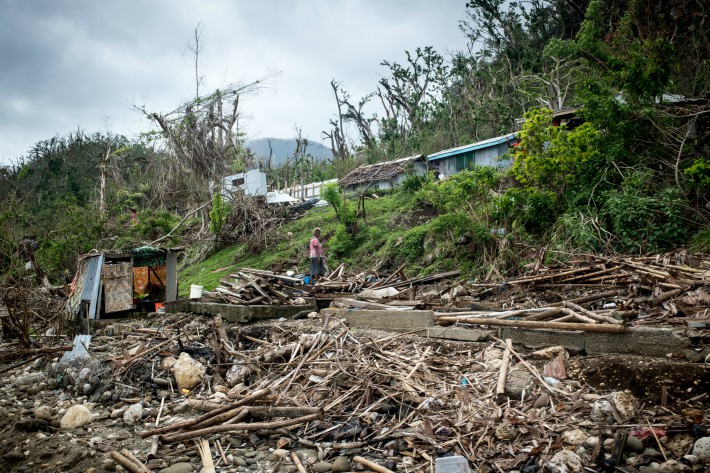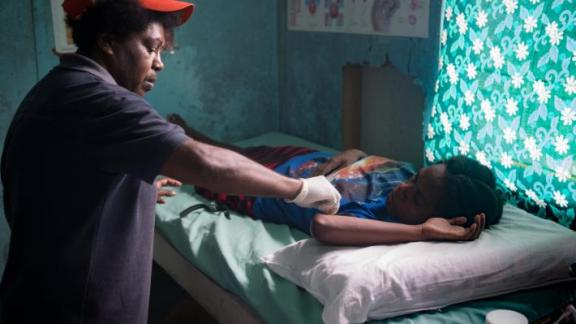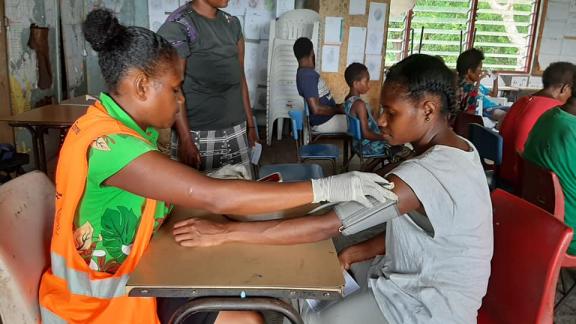Leias Obed is a registered nurse working with the Vanuatu Family Health Association (VFHA). She’s part of the Emergency Medical Team operating out of Pangi in south Pentecost, as part of the Cyclone Harold response, which hit in April 2020. We caught up with her there.
Sexual and reproductive health is a "hidden agenda", she said, putting a positive spin on the phrase. Women often have to hide their sexual and reproductive health issues and concerns, for fear of stigmatization, or even coercion and violence.

By joining the relief effort as part of larger joint medical teams capable of addressing numerous concerns for both men and women, the VHFA staff are able to use the opportunities presented to contact potential clients discreetly and without putting them at risk. Informal exposure to skilled medical staff and counsellors is often enough to initiate a process that results in better, more manageable living conditions for women and their families.
Unaware of their own pregnancy
“We came to central Pentecost,” said Leias, “and we came across many issues affecting women and girls, but it's like I mentioned, it's a 'hidden agenda'. One thing that we found out is that many women have large numbers of children and their spacing is too close together. But they don't see it as a problem. It's not a problem for them."
“Some women who became pregnant during the disaster weren't even aware of their status, but when they came to see us, we have pregnancy tests, and when we test them, they're positive. They're pregnant, and a lot of them have family planning needs.”
“Their communities are a long long way from accessing facilities like [these] clinics. We go there and we help them understand, about implants that last five years. A lot of them didn't really understand. They didn't know, it but their main issue is family planning.”
Information and education for all
“During a response we're more concentrated on the issues facing women right now but it's clear there's a need for us to come back. We must come back so that people can come to understand: What exactly is family planning? Why is it important to use contraceptive treatments?
“They really don't understand well at all about family planning products.” The information and education process needs to reach everyone, though: “It would be good if we came back. We come back and present small workshops to fathers, chiefs and to communities at large. To young girls, to mothers so they can come to understand.”
There’s a need to follow through, she says.
“Family planning is an individual right. We won't force anyone to take it. But there's a need. The more we stay with them, the more we explain, then they can begin to change their mind-set. Then they can freely choose to take family planning.”
when
country
Subject
Egypt
Related Member Association









